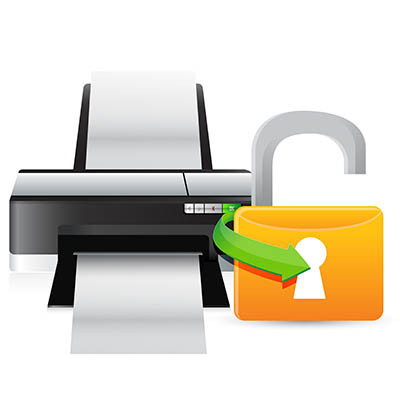Reach Us Today!
TaylorWorks, Inc. Blog
TaylorWorks, Inc. has been serving the Longwood area since 1999, providing IT Support such as technical helpdesk support, computer support, and consulting to small and medium-sized businesses.
Printers Can Pose a Security Risk If You Aren’t Careful
Multifunctional printers can be indispensable business tools. However, they also pose significant security risks, potentially serving as entry points for cybercriminals seeking to exploit vulnerabilities and pilfer sensitive data and resources. Safeguarding your organization against these threats is paramount. This blog post will explore key measures to fortify your networks against printer-based vulnerabilities.
Identifying Printer Vulnerabilities
Let's examine three primary ways through which printers can compromise network security:
Default Passwords
Many printers are shipped with default passwords, granting easy access to anyone on the network. Replacing these defaults with robust, unique passwords is imperative to thwart unauthorized access. Additionally, integrating Active Directory authentication enhances control over printer access, improving security.
Lack of Security
Printers often function as network terminals, rendering them susceptible to cyberattacks. Overlooking the data stored on these devices can lead to theft and compromise. Implementing firewalls shields printers from malicious intrusions and minimizes exposure to your information systems.
Outdated Firmware
Like any computing device, printers require periodic firmware updates to patch vulnerabilities. Opting into automated update mechanisms ensures timely maintenance, closing off avenues for exploitation and enhancing printer security significantly.
Addressing Unsecured Print Jobs
Every print job represents a potential vulnerability, particularly when handling confidential data. Implementing secure print release mechanisms, such as PIN codes, ID cards, or additional encryption, adds layers of protection, safeguarding printers and sensitive information.
Printer-related cybercrime poses a tangible threat to organizations. Don't leave your organization vulnerable—take proactive steps to safeguard your networks and data from potential breaches. To bolster your IT security and learn more about protecting your business, reach out to our IT experts today at (407) 478-6600.
We can’t Wait to Work with You.
Schedule an introductory meeting Today!

1435 W. SR 434 Suite 109
Longwood, Florida 32750






Comments